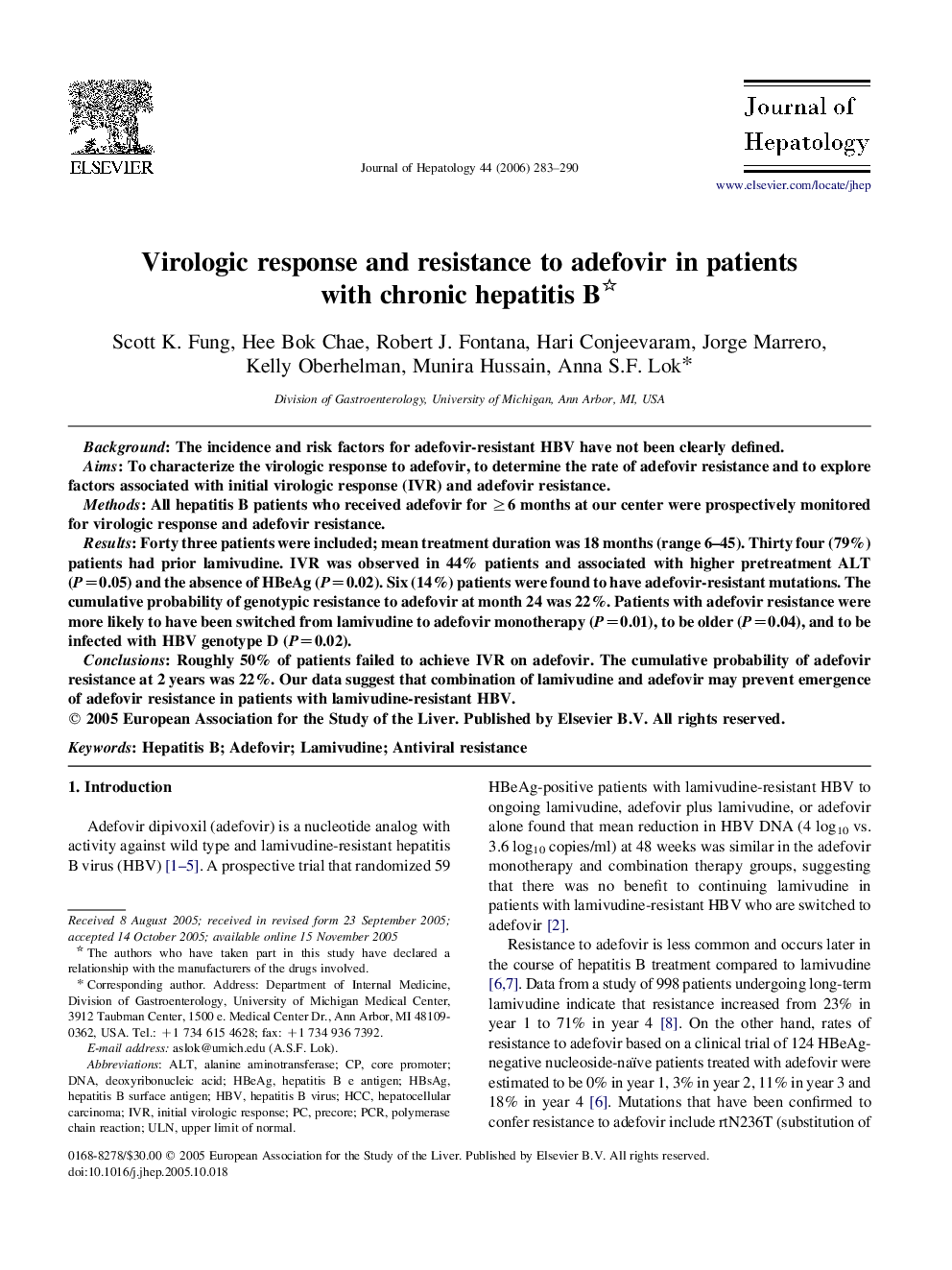| Article ID | Journal | Published Year | Pages | File Type |
|---|---|---|---|---|
| 3315236 | Journal of Hepatology | 2006 | 8 Pages |
BackgroundThe incidence and risk factors for adefovir-resistant HBV have not been clearly defined.AimsTo characterize the virologic response to adefovir, to determine the rate of adefovir resistance and to explore factors associated with initial virologic response (IVR) and adefovir resistance.MethodsAll hepatitis B patients who received adefovir for ≥6 months at our center were prospectively monitored for virologic response and adefovir resistance.ResultsForty three patients were included; mean treatment duration was 18 months (range 6–45). Thirty four (79%) patients had prior lamivudine. IVR was observed in 44% patients and associated with higher pretreatment ALT (P=0.05) and the absence of HBeAg (P=0.02). Six (14%) patients were found to have adefovir-resistant mutations. The cumulative probability of genotypic resistance to adefovir at month 24 was 22%. Patients with adefovir resistance were more likely to have been switched from lamivudine to adefovir monotherapy (P=0.01), to be older (P=0.04), and to be infected with HBV genotype D (P=0.02).ConclusionsRoughly 50% of patients failed to achieve IVR on adefovir. The cumulative probability of adefovir resistance at 2 years was 22%. Our data suggest that combination of lamivudine and adefovir may prevent emergence of adefovir resistance in patients with lamivudine-resistant HBV.
